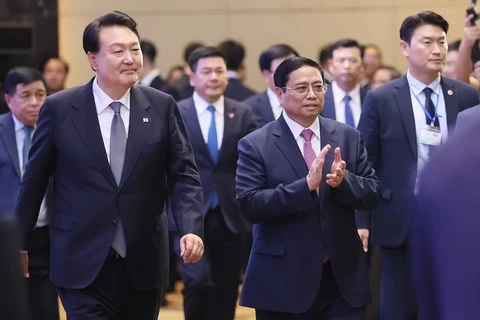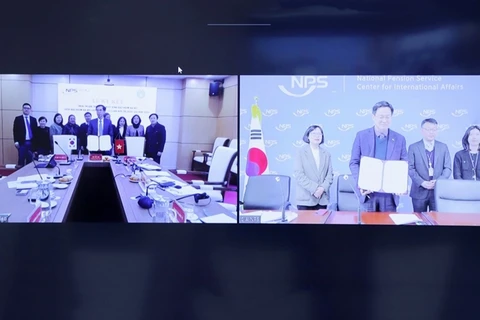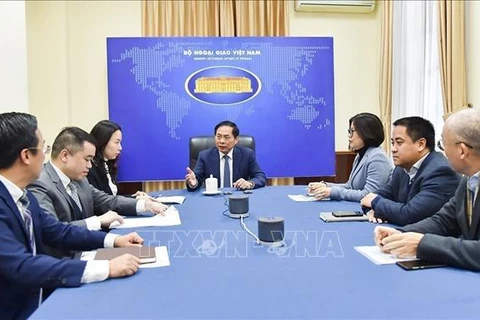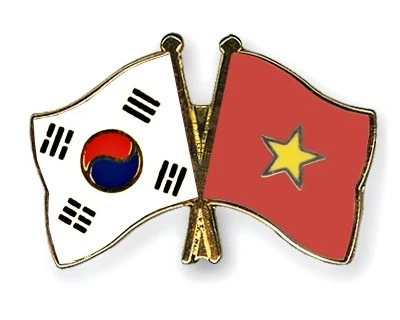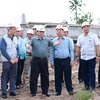Hanoi (VNA) – President of the Ho Chi Minh National Academy of Politics (HCMA) Nguyen Xuan Thang held a working session in Hanoi on January 29 with Chancellor of the Korea National Diplomatic Academy (KNDA) Park Cheol-hee.
Thang said the Vietnam-Republic of Korea relationship is now at its best since the establishment of their diplomatic ties in 1992.
Highlighting the rapid and effective development of ties across politics, diplomacy, national defence-security, economy and trade bilaterally and multilaterally over the past more than three decades, he said Vietnam prioritises the promotion of trade, science, investment, with a particular emphasis on energy transition, green transformation, artificial intelligence and semiconductor technology.
Given Vietnam's rising prominence as a preferred destination for leading global semiconductor corporations like Intel and Samsung, Thang expressed a keen interest in furthering cooperation in this crucial sector. He also envisioned an expansion of collaboration in the industrial supply chain, semiconductor technology, carbon neutrality and trade facilitation through greenhouse gas reduction, clean energy, expanding rules of origin and core mineral resources.
Park, for his part, wished for enhanced cooperation through specialised training for officials and lecturers provided by the HCMA, along with courses for trainees. He also expressed a desire to hold a semiconductor forum.
Both sides discussed and agreed to cooperate on climate change response, especially in maritime security in the region.
At a seminar on maritime security cooperation in the region and cooperation in the Greater Mekong Sub-region co-organised by the HCMA and the KNDA earlier, the two sides reached consensus on key measures to create a safe maritime environment, emphasising the political will of countries to coordinate actions.
They highlighted the need for collective efforts involving organisations or countries rather than unilateral and separate actions. They also stressed the importance of implementing existing frameworks and mechanisms, building trust through the publication of white papers.
Additionally, measures in areas such as preserving marine biological resources, protecting the marine environment, and building capacity for law enforcement agencies at sea were identified as areas requiring stronger cooperation and agreements at the regional level./.

